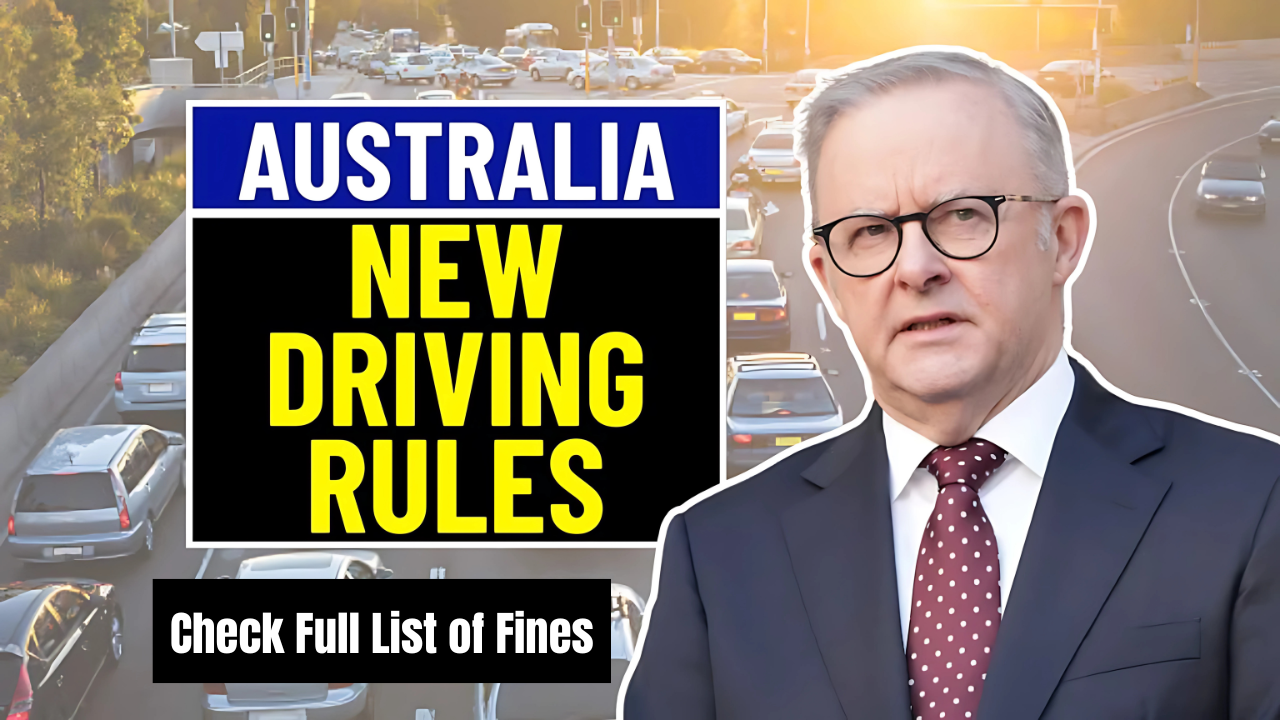Navigating South Australia’s roads requires more than just knowing how to drive—it means understanding the rules and consequences if you break them. Whether you’re a driver, rider, or pedestrian, the law is clear: road safety is everyone’s responsibility. This guide covers everything from demerit points and fines to licence disqualification and special agreements for safer driving. Australia’s New Road Rules 2025: Expiation Fees, Offences & Demerit Points Explained.
The Legal Framework for Road Offences
Legislation Behind Road Rules
Most driving offences in South Australia fall under the Road Traffic Act 1961 (RTA), supported by regulations like the Australian Road Rules (ARR) and the Road Traffic (Road Rules – Ancillary and Miscellaneous Provisions) Regulations 2014. The Motor Vehicles Act 1959 (MVA) governs driver’s licences, vehicle registration, and third-party insurance. For more serious offences, such as hoon driving, the Criminal Law (Clamping, Impounding and Forfeiture of Vehicles) Act 2007 applies, allowing police to clamp or impound vehicles involved in dangerous behaviour1.
Demerit Points: How They Work
Accumulating Demerit Points
Demerit points are assigned for various traffic offences, reflecting the risk each offence poses to road safety. Points are added whether the offence occurs in South Australia or interstate. Here’s how demerit points can affect your licence:
-
Full Licence:
-
6+ points: Warning notice sent.
-
12–15 points: 3-month disqualification.
-
16–20 points: 4-month disqualification.
-
20+ points: 5-month disqualification.
-
-
Learner’s Permit or Provisional Licence:
-
4+ points: At least 6-month disqualification.
-
-
Probationary Licence:
-
2+ points: At least 6-month disqualification.
-
You can check your demerit points and driving history online1.
Fines and Expiation Notices
Paying for Traffic Offences
If you commit a traffic offence, you’ll likely receive an expiation notice and a fine. Common reasons include speeding, running a red light, or not wearing a seatbelt. Most offences also include a Victims of Crime levy, except for parking fines issued by local councils.
If you weren’t driving at the time, you can nominate the responsible driver via a statutory declaration. If you disagree with the offence, you can contest it in court instead of paying the fine. Overdue fines can result in licence suspension or refusal of vehicle registration, regardless of whether the offence was traffic-related1.
Losing Your Licence: Disqualification
Reasons for Licence Disqualification
You can lose your licence for several reasons, including:
-
Accumulating demerit points (as above)
-
Breaching licence conditions (learner, provisional, or probationary)
-
Drug or drink driving
-
Failing to pay fines
-
Graffiti offences (court conviction)
Immediate licence loss occurs for:
-
Drink driving (0.08 BAC or higher)
-
Drug driving
-
Refusing a breath, blood, or drug test
-
Dangerous driving
-
Excessive speeding (45 km/h or more over the limit)
If disqualified, you’ll receive a notice in the mail, unless it’s an immediate roadside loss. Disqualification usually starts 28 days after notice, but you must acknowledge receipt and pay a fee. If you’re already disqualified, new disqualifications start immediately after the current one ends1.
Good Behaviour and Safer Driver Agreements
Good Behaviour Option
If you accumulate 12 or more demerit points, you may be offered a 12-month good behaviour option instead of disqualification. You must notify the Registrar of Motor Vehicles within 28 days. During this period, you can drive but must not incur two or more demerit points. If you do, you’ll be disqualified for twice the original period, with no appeal or further good behaviour option1.
Safer Driver Agreement
Provisional licence holders disqualified for accumulating four or more points (or breaching conditions) may enter a Safer Driver Agreement instead of a six-month disqualification. Breaching the agreement leads to a 12-month disqualification. You’re not eligible for another agreement if disqualified again within five years1.
Alcohol Interlock and Vehicle Impoundment
Alcohol Interlock Scheme
Serious drink-driving offences require an alcohol interlock device to be fitted to your vehicle after disqualification. This device prevents the car from starting if alcohol is detected on your breath1.
Vehicle Clamping and Impoundment
Police can clamp or impound your vehicle for up to 28 days for offences like dangerous driving, excessive speed, drink or drug driving, driving while disqualified, or causing excessive noise or smoke. Repeat offenders may face harsher penalties, including permanent vehicle seizure. Vehicles can also be impounded for graffiti offences.
Summary of Common Offences and Penalties
Below is a schema table summarizing select road safety offences, their legislation, expiation fees, and demerit points (effective 1 July 2024):
| Offence | Legislation | Expiation Fee ($) | Demerit Points |
|---|---|---|---|
| Speeding <10 km/h | ARR 20, RT RR Regs 8(1) | 202 | 2 |
| Speeding 10–19 km/h | ARR 20, RT RR Regs 8(1) | 455 | 3 |
| Speeding 20–29 km/h | ARR 20, RT RR Regs 8(1) | 926 | 5 |
| Speeding 30–44 km/h | ARR 20, RT RR Regs 8(1) | 1684 | 7 |
| Speeding 45+ km/h | RTA s45A(b), RTA s45A(a) | 1895 | 9 (plus immediate licence loss) |
| Failing to wear seatbelt (driver) | ARR 264 | 435 | 3 |
| Failing to ensure child restraint | ARR 266(1) | 435–514 | 3–5 |
| Drink driving (0.05–0.079 BAC) | RTA s47B(1) | 849 | 4 |
| Drug driving | RTA s47BA(1) | 849 | 4 |
| Using mobile phone while driving | ARR 300(1) | 556 | 3 |
| Running red light | ARR 56(1) | 556 | 3 |
| Failing to stop at children’s crossing | ARR 80(2) | 514 | 3 |
| Driving under influence | RTA s47(1) | Court imposed | 6 |
| Driving recklessly/dangerously | RTA s46(1) | Court imposed | 6 |
Penalties for Novice Drivers
Special Rules for Learner and Provisional Licence Holders
Novice drivers face stricter penalties. For example, failing to display L or P plates, not carrying a licence, or breaching licence conditions can result in fines and disqualification. Using a mobile phone while driving as a learner or P1 driver attracts a $556 fine and 3 demerit points.
Drink and Drug Driving: Severe Consequences
Strict Penalties for Alcohol and Drugs
Drink and drug driving offences carry severe penalties, including fines, licence disqualification, demerit points, and possible imprisonment. Immediate licence loss applies for serious offences. Repeat offenders face longer disqualifications and may be required to undergo dependency assessments or treatment programs.
Frequently Asked Questions (FAQs)
1. How can I check my demerit points in South Australia?
You can check your demerit points and driving history online through the South Australian government’s mylicence website.
2. What happens if I don’t pay my traffic fine?
If you don’t pay your fine, your driver’s licence may be suspended, and you could be refused vehicle registration.
3. Can I avoid disqualification if I get too many demerit points?
If you accumulate 12 or more points, you may be offered a 12-month good behaviour option instead of disqualification, provided you don’t incur more points during that period.
Road safety is a shared responsibility. Understanding the rules, penalties, and consequences helps keep everyone safe on South Australia’s roads. Always drive responsibly, stay informed, and respect the law to protect yourself and others.
Also Read:- Drivers Beware: $1,000 Fine and Car Seizure Possible on Private Roads Under New Law

